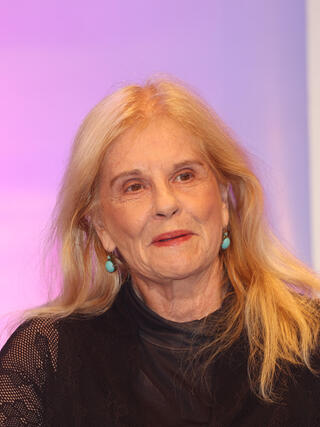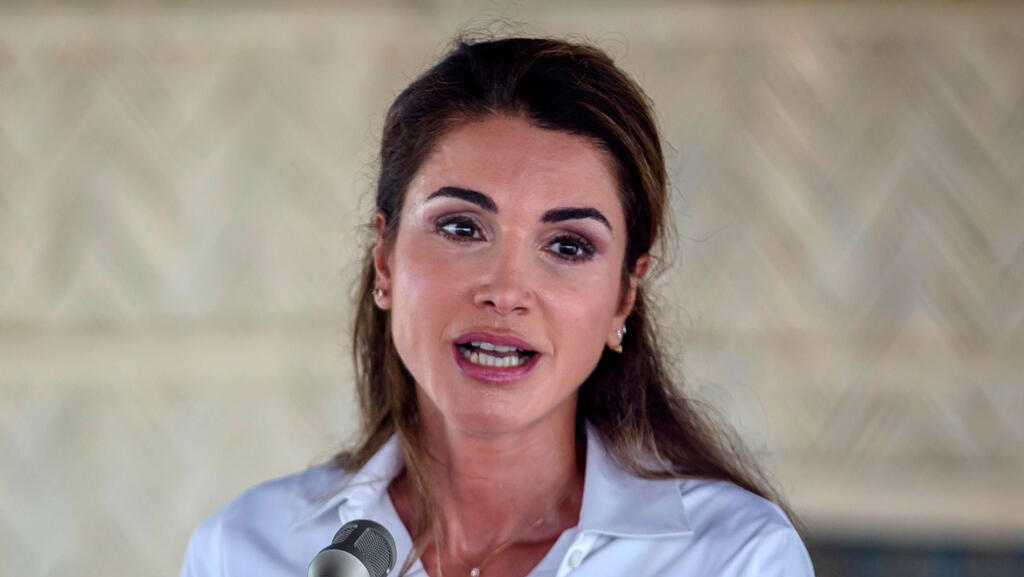Getting your Trinity Audio player ready...
Before delving into Queen Rania of Jordan's harsh statements to CNN's Christiane Amanpour last week, a few key points should be considered. First, Rania's Palestinian background: Her father, Dr. Faisal Sidqi Al-Yassin, and her mother, Ilham Yassin, were born and resided in the West Bank city of Tulkarm until the 1967 Six-Day War. Rania herself was born in Kuwait, where the family had relocated, and she later arrived in Jordan, capturing the heart of King Abdullah.
Read more:
Second, in Amman, large-scale protests were taking place, with tens of thousands taking to the streets and surrounding the Israeli embassy in the Rabyah neighborhood. Ambassador Eitan Surkis and his team have long returned to Jerusalem, but the crowds still besiege the compound, with only Jordanian military forces separating them from the "Zionist entities' mission."
Third, not too long ago, Queen Rania was a despised figure in Jordan. The citizens of the impoverished nation were witness to her opulent gowns and the use of a private jet to transport the royal laundry to be cared for in the Bay Area. The level of disgust led the queen to issue a special message explaining that she received her shimmering attire through loans European fashion houses. However, this explanation did not alter the sentiments of football fans, who chanted at King Abdullah, "Divorce the Palestinian and marry one of us."
All of this has faded in the past year, as the royal family was preoccupied with the wedding of the Crown Prince, Hussein, to Ragwa Al-Saif, who comes from a wealthy Saudi Arabian family.
I've met Queen Rania more than 20 times over the years and had many conversations with her. She is intelligent, sharp, beautiful, and up-to-date. She always received me me graciously.
The interview on CNN was difficult for Israeli viewers to watch. Rania came prepared to lodge complaints about the double standard of Western leaders and the media, and how sympathetically the Israeli position was received since October 7, "despite the large number of Palestinian children killed in the airstrikes."
 Smadar PerryPhoto: Yariv Katz
Smadar PerryPhoto: Yariv Katz"Even on CNN," the Queen told Amanpour, "there was a headline about Israeli children found dead in an Israeli kibbutz. Would you believe such stories if they came from the Palestinians?" Time and time again, Queen Rania cast doubt about the horrors committed by Hamas terrorists, adding that "the U.S. president claimed he had evidence, that he saw evidence of decapitated children, only to later retract it when the IDF said there was no proof."
At this point, the veteran interviewer decided to cut through the heated discourse. "Queen Rania," she said, "I need to stop you because there were pictures that Israelis and our journalists on the ground saw. I'm not talking about decapitations; I'm talking about bodies of babies full of bullets."
Amanpour attempted repeatedly to confront the Queen with facts, but Rania countered by denying the facts and ended the interview with a description of the immense grief that the Arab world feels when confronted with the images coming from Gaza. As for the heinous acts committed by thousands of Palestinians on the Israeli side, she preferred not to speak of them.


